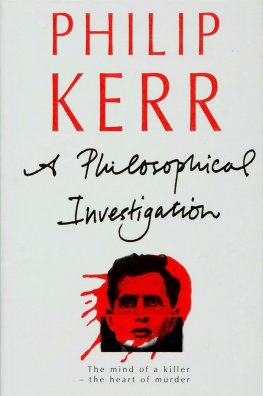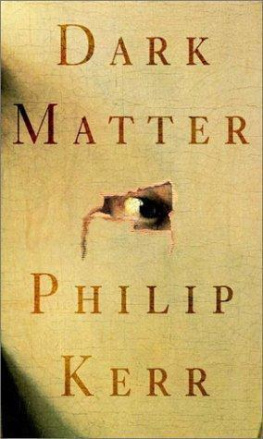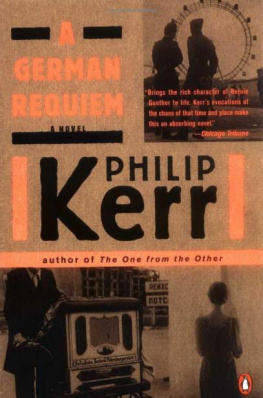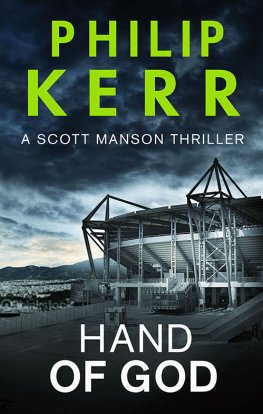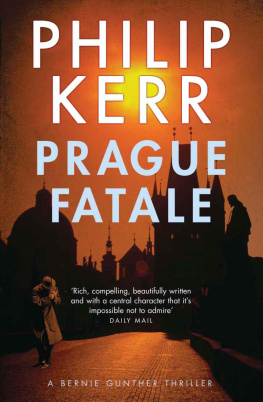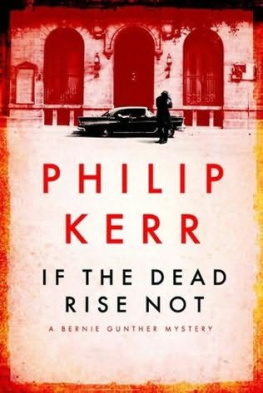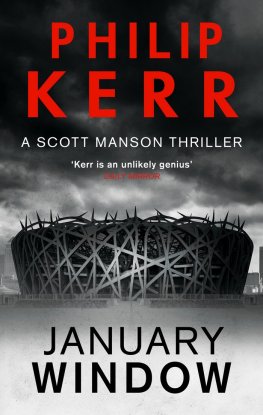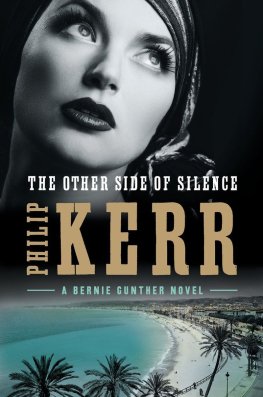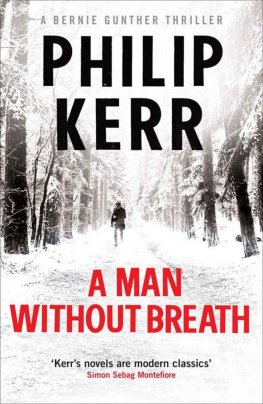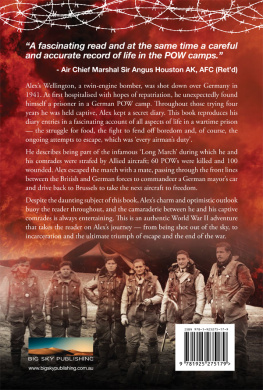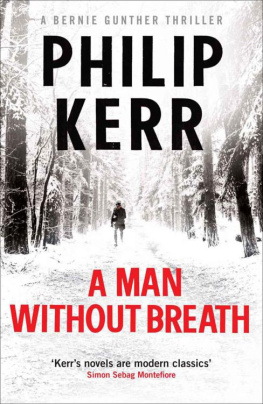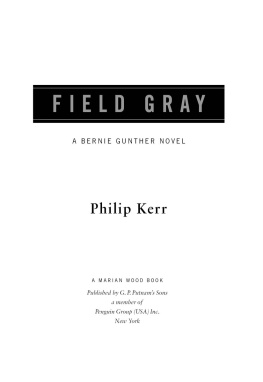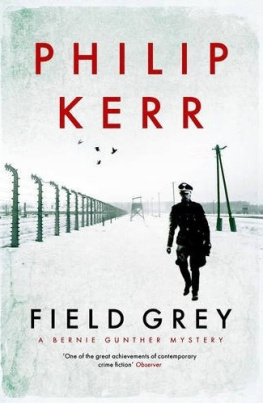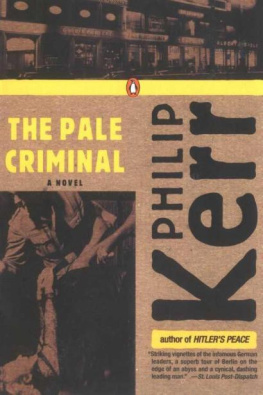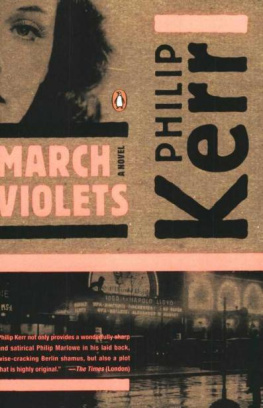Philip Kerr - The Shot
Here you can read online Philip Kerr - The Shot full text of the book (entire story) in english for free. Download pdf and epub, get meaning, cover and reviews about this ebook. year: 2001, publisher: Pocket, genre: Detective and thriller. Description of the work, (preface) as well as reviews are available. Best literature library LitArk.com created for fans of good reading and offers a wide selection of genres:
Romance novel
Science fiction
Adventure
Detective
Science
History
Home and family
Prose
Art
Politics
Computer
Non-fiction
Religion
Business
Children
Humor
Choose a favorite category and find really read worthwhile books. Enjoy immersion in the world of imagination, feel the emotions of the characters or learn something new for yourself, make an fascinating discovery.

- Book:The Shot
- Author:
- Publisher:Pocket
- Genre:
- Year:2001
- Rating:3 / 5
- Favourites:Add to favourites
- Your mark:
- 60
- 1
- 2
- 3
- 4
- 5
The Shot: summary, description and annotation
We offer to read an annotation, description, summary or preface (depends on what the author of the book "The Shot" wrote himself). If you haven't found the necessary information about the book — write in the comments, we will try to find it.
The Shot — read online for free the complete book (whole text) full work
Below is the text of the book, divided by pages. System saving the place of the last page read, allows you to conveniently read the book "The Shot" online for free, without having to search again every time where you left off. Put a bookmark, and you can go to the page where you finished reading at any time.
Font size:
Interval:
Bookmark:
ORION
Copyright 1999 Philip Kerr
The right of Philip Kerr to be identified as the author of this work has been asserted by him in accordance with the Copyright, Designs and Patents Act 1988
First published in Great Britain in 1999 by Orion
An imprint of Orion Books Ltd
Orion House, 5 Upper St Martins Lane, London WC2H 91A
All the characters in this book are fictitious, and any resemblance to actual persons, living or dead, is purely coincidental
Grateful acknowledgement is made for permission to quote from The Threepenny Opera.
For Robert Bookman
Y know when that shark bites, with his teeth, babe, scarlet billows start to spring; Fancy gloves, though, wears old man Heath, babe, so theres never, never a trace of red.Mack the Knife
The Threepenny Opera by Kurt Weill
Helmut Gregor feared the sound of his real name as another man might fear the name of his worst enemy. But thanks to the generous support of his family and the agricultural business that continued to thrive in Gnzberg, Bavaria, he managed to live very comfortably in Buenos Aires.
An old but attractive capital it is a well-named city of good airs Buenos Aires has many fine boulevards and an excellent opera house, and on a cool July afternoon in 1960, the middle-aged German doctor could still think himself in his beloved Vienna, before the war before the defeat of Germany had necessitated such a protracted period of exile. For almost ten years he had resided in a quiet country house in the predominantly English suburb of Temperley. At least he had until now. After what had happened to Adolf Eichmann, Helmut Gregor considered it safer to move into the city centre. And until he could find a suitable apartment in the microcentro, he was currently staying at the elegant and modern City Hotel.
Other old comrades, alarmed by the audacity of the kidnapping Eichmann had been snatched from his own house in San Fernando by Israeli intelligence agents and spirited away to Jerusalem had fled across the Rio de la Plata to Uruguay and the city of Montevideo. The cooler Helmut Gregor, noting the worlds condemnation of Israels violation of international law and the possibility that the Israeli embassy in Argentina might be forced to close down not to mention the rather satisfying wave of anti-Semitic violence that had recently occurred in Buenos Aires as a result of the illegal Israeli action had reasoned that in all probability Buenos Aires was now the safest city in all of South America. For him and others like him, at any rate.
There seemed little chance of the same thing happening to Helmut Gregor as had happened to Eichmann. Especially now that sympathetic friends in the right-wing Argentinian government had arranged for him to have twenty-four-hour police protection. It was Gregors opinion that by living in the middle of nowhere and lacking the kind of money that would have bought some protection, Adolf Eichmann had made it easy for his Israeli enemies. Even so, he had to admit that the Jews had carried off the operation with considerable flair. But he did not think they would, or could, snatch him from the biggest hotel in Buenos Aires.
Not that he stayed skulking indoors all day. Far from it. Like Vienna, Buenos Aires is a city made for walking, and like the ancient capital of Austria it boasts some excellent coffee houses. So every afternoon, at around three oclock, and accompanied by the melancholic, swarthy-featured policeman who was his afternoon bodyguard but for the mans piercing blue eyes, Gregor would have said he looked more gypsy than Spanish the German doctor would take a brisk walk to the Confiteria Ideal.
With its elaborate brass fittings, marble columns, and, in the late afternoons, an organist who played a medley of waltzes and tangos, the Ideal caf, just off Corrientes, seemed a perfect evocation of old Austrian Gemutchkeit. After drinking his usual cortado doble and eating a slice of delicious chocolate cake, and having closed the cold dark eyes that had seen his own hands inflict a whole Malabolgia of horrors, it was quite possible for the doctor to imagine himself back in Viennas Central Caf on Herrengasse, anticipating a night at the Staatsoper or the Burgtheater. For a while anyway, until it was time to go.
As he and his bodyguard collected their coats and left the Ideal at the usual time of a quarter to five, it would have been quite impossible for Helmut Gregor to have imagined himself in any way worse off than Adolf Eichmann. And yet he was. It would be another twenty-three months before Eichmann would meet the hangman in Ramleh Prison. But judgement was rather closer to hand for the doctor. Even as he was leaving the Ideal, one of the waiters, himself a Jew of whom there are a great many in Buenos Aires had ignored the doctors generous tip and was calling the Continental Hotel. Sylvia? Its me. Moloch is on his way.
Sylvia replaced the hotel rooms telephone receiver and nodded at the tall American who was lying on the big bed. He threw aside the new Ian Fleming he had been reading, stubbed out his cigarette, and, having climbed up on top of the large mahogany wardrobe, adopted a prone position. Sylvia did not think this behaviour eccentric. Rather, she admired him for the efficient professional way he approached his task. Admired him, but feared him too.
The Continental Hotel, on Roque Saenz Pena, was a classic Italian-style building, but it reminded the American most of the Flatiron building in New York. The room was on the fifth-floor corner and through the open, double-height window he could see right up the street to the corner of Suipacha, a distance of over one hundred and fifty yards. The wardrobe creaked a little as he leaned toward the Winchester rifle that was already carefully positioned there between a couple of pillows. He always disliked poking a rifle out of an open window, preferring the comparative anonymity of a makeshift marksmans platform constructed inside the shooting position. Moving the wardrobe away from the wall by six or seven feet had created the perfect urban hide, rendering him virtually undetectable from the street or the office building opposite. Now all he had to worry about was the unsuppressed noise of the .30-calibre rifle when he squeezed the trigger.
But even that, he hoped, had been taken care of: Sylvia was already signalling to a car parked on the other side of the street. The black De Soto, a popular car in Buenos Aires, was old and battered, with a tendency to backfire, and, seconds later, there came a report, as loud as any rifle shot, that scattered the seagulls and pigeons on the ledge outside the window like a handful of giant-sized confetti.
Not much of a ruse, thought the American, but it was better than nothing. And anyway, BA wasnt like his hometown of Miami where the locals werent much used to the sound of firecrackers, or gunfire. Here there were plenty of public holidays, always celebrated at maximum volume, with cherry bombs and starting pistols, not to mention the odd revolution. It was only five years since the Argentinian air force had strafed the main square of the city during the military coup that had overthrown Peron. Loud bangs and explosions were a way of life in Buenos Aires. And sometimes death.
Sylvia collected a pair of field binoculars and stood with her back against the wardrobe, immediately underneath the barrel of the rifle. More powerful than the 8X Unertl scope mounted on the Americans rifle, the binoculars were to help her ensure that among the many pedestrians who passed along the length of Roque Saenz Pena, the target was properly spotted and a kill detected.
Font size:
Interval:
Bookmark:
Similar books «The Shot»
Look at similar books to The Shot. We have selected literature similar in name and meaning in the hope of providing readers with more options to find new, interesting, not yet read works.
Discussion, reviews of the book The Shot and just readers' own opinions. Leave your comments, write what you think about the work, its meaning or the main characters. Specify what exactly you liked and what you didn't like, and why you think so.

